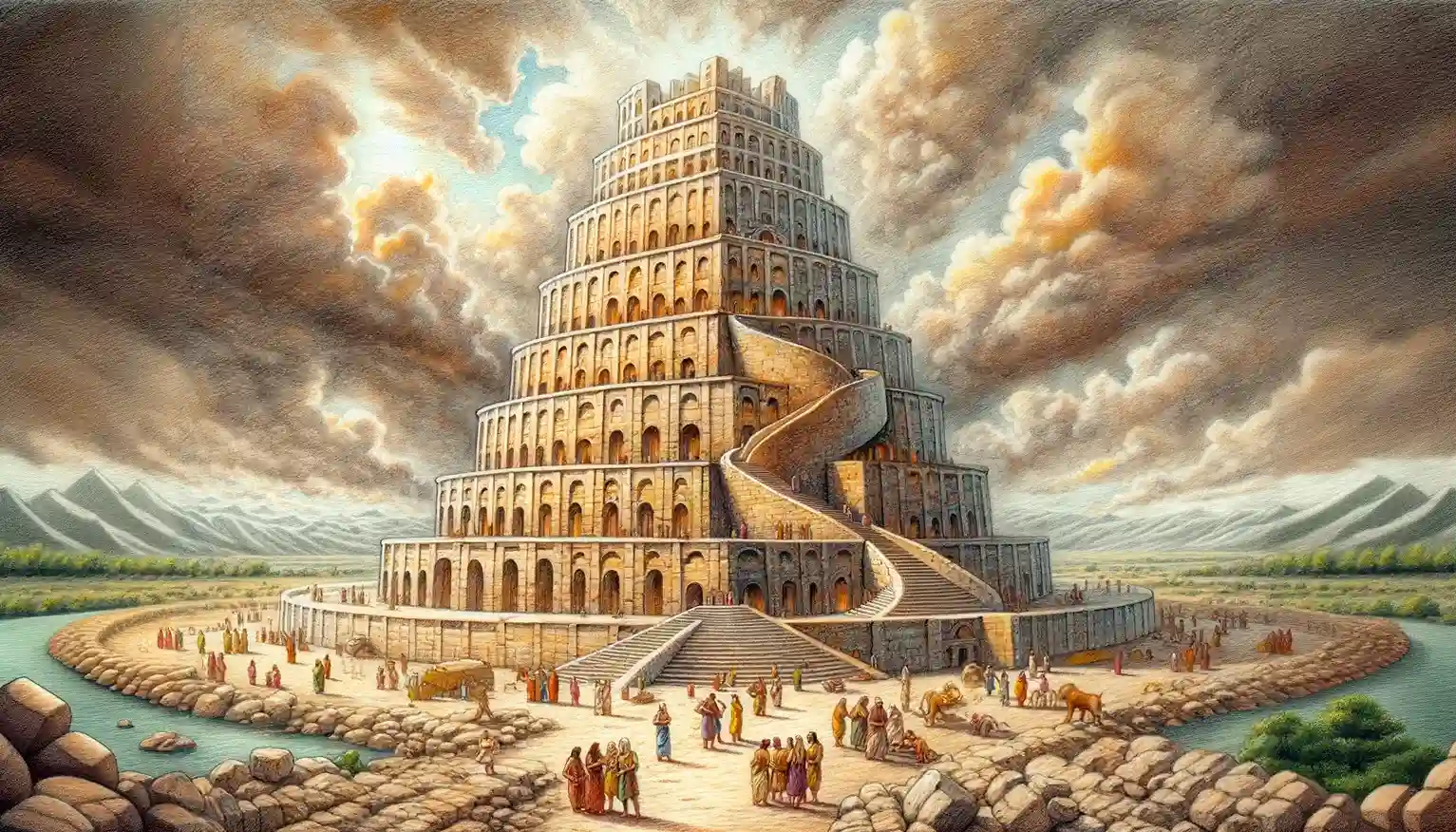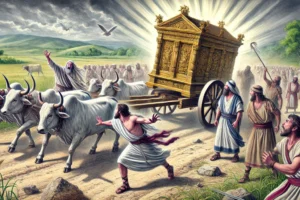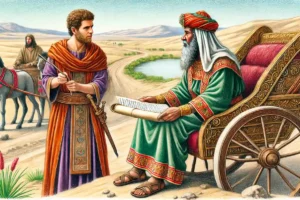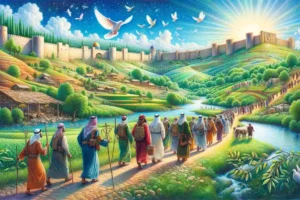
The Tower of Babel
The Tower of Babel is a biblical narrative found in Genesis 11:1-9, describing an early civilization’s attempt to build a city and a tower reaching up to the heavens. This story is pivotal in explaining the diversity of languages and the spread of peoples across the earth.
- Unified Language – Initially, all the people of the earth spoke a single language and shared the same words.
- Construction Goal – The inhabitants of the earth decided to build a city and a tower “with its top in the heavens” to make a name for themselves and avoid being scattered across the face of the whole earth.
- Divine Intervention – God observed their city and tower and noted that nothing they planned to do would be impossible for them with their unified language.
- Confusion of Languages – In response, God decided to confuse their language, making it impossible for them to understand one another.
- Scattering of Peoples – As a result of the confusion of languages, the people were scattered from there over the face of all the earth, and they stopped building the city.
- Name and Symbolism – The name “Babel” sounds like the Hebrew word for “confused,” and it is said that there the Lord confused the language of the whole earth.
Contextual Background
The narrative of the Tower of Babel in Genesis 11:1-9 serves as a bridge between the early post-flood stories and the later patriarchal narratives of Abraham and his descendants. It occurs in a context where humanity is rapidly multiplying and migrating across the earth after the flood.
Theological Insights
- Unity and Ambition
- The story begins with all humanity united by a single language and a common purpose. This unity is expressed through their collective endeavor to build a city and a tower reaching up to the heavens. Their ambition is to make a name for themselves, which suggests a desire for fame and a permanent legacy, demonstrating human pride and self-sufficiency.
- Divine Perspective and Intervention
- The divine response to this human activity is pivotal. God comes down to see the city and the tower, which implies that despite their lofty ambitions, their achievements are still minuscule from God’s perspective. The decision to confuse their language and scatter them across the earth is a direct response to their unity being used for self-glorification rather than living in obedience to God’s purposes.
- Implications of Language Confusion
- The confusion of languages serves as both a judgment and a protective act. By confusing their language, God inhibits their ability to collaborate towards potentially destructive ends. This dispersion also catalyzes the cultural diversification and geographical spread of humanity, which can be seen as fulfilling God’s earlier command to “fill the earth” (Genesis 9:1).
- Symbolism of the Tower
- The tower represents human attempts to reach the heavens, symbolizing not just architectural ambition but a deeper desire to usurp a place beside or above God. It reflects a recurring biblical theme of human hubris confronting divine sovereignty.
Cultural and Literary Impact
- A Universal Myth: The Tower of Babel story parallels other ancient myths that explain cultural diversity and human hubris, showing its universal themes resonate across different cultures and ages.
- Linguistic and Cultural Diversity: The narrative has profoundly influenced how cultures interpret language and cultural identity, often seen as a divine gift that allows a rich tapestry of human expression and interaction while also posing challenges for unity and understanding.
- Interpretations in Art and Literature: The story has been a potent symbol in art and literature, depicted in numerous paintings, books, and films. These interpretations often reflect on the themes of ambition, communication, and diversity.
Conclusion
The Tower of Babel narrative is rich in theological and moral lessons. It teaches about the limits of human ambition and the consequences of using unity for self-aggrandizement rather than for glorifying God. The story emphasizes the importance of diversity and the intrinsic value God places on linguistic and cultural plurality. It also serves as a cautionary tale about the potential for human endeavors to fail when they are not aligned with divine will.



